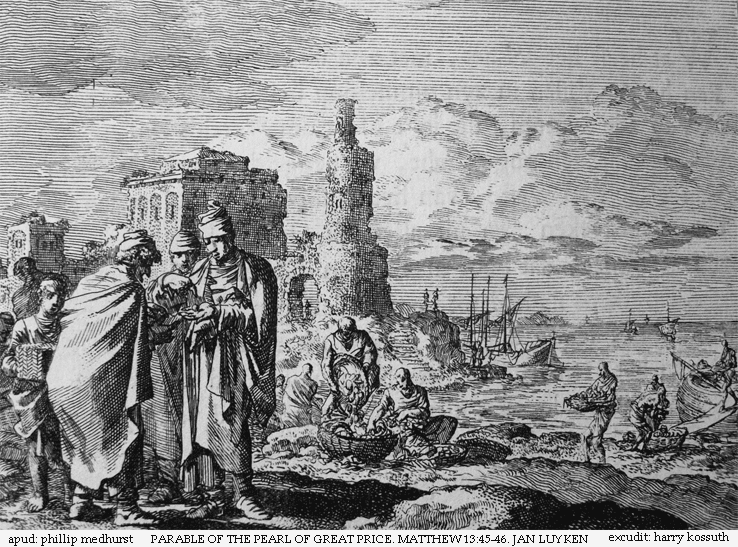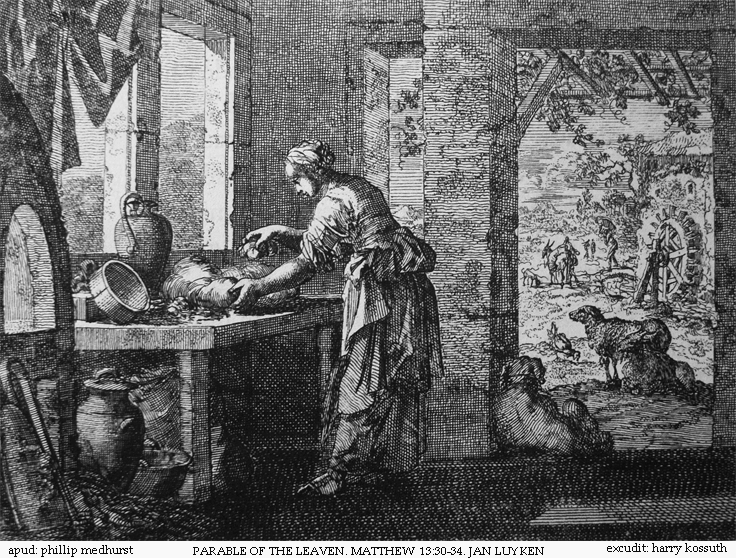Over at the Hang Together blog, Greg Forster takes a long look at the images of the gospel as “pearl” and “leaven” and the implications for Christian engagement and creation of culture, particularly within the context of the Great Commission and the Cultural Mandate:
The main difficulty we seem to have in discussing Christian cultural activity is the strain between two anxieties. These anxieties create unnecessary divisions between brothers, because those who are more worried about making sure the gospel is leaven view those who are more worried about making sure the gospel is pearl as people who are leading the church astray, and vice versa. We treat people as opponents when we could be treating them as allies, if we could just get over our fears.
The question of what it means to be a Christian line worker on a factory floor gets precisely at many of the thorny issues that have led to so many debates, disputes, and controversies over cultural engagement (or transformation), the “two kingdoms,” natural law, and faith and work.

Greg generously credits me as a source for the biblical images of the gospel as pearl and leaven, but I simply mediated them from Herman Bavinck, who uses the images to great effect in his essay, “Christian Principles and Social Relationships.” (You can get Bavinck’s essay as part of this fine collection.) If you’d like to hear a version of how I worked these images out in the context of a theological survey of social institutions, you can listen to my Acton University lecture from 2012, “The Church and God’s Economy,” available here under “Day 2 – June 13, 2012.”
Bavinck lays out the images in this way: “The significance of the gospel does not depend on its influence on culture, its usefulness for life today; it is a treasure in itself, a pearl of great value, even if it might not be a leaven.” But he continues,
Although the worth of Christianity is certainly not only, not exclusively, and not even in the first place determined by its influence on civilization, it nevertheless is undeniable that Christianity indeed exerts such influence. The kingdom of heaven is not only a pearl; it is a leaven as well. Whoever seeks it is offered all kinds of other things. Godliness has a promise for the future, yet also for life today. In keeping God’s commandments, there is great reward. In its long and rich history, Christianity has borne much valuable fruit for all of society in all its relationships, in spite of the unfaithfulness of its confessors.
As John Baillie would later put it, “The great shadow on the conscience of the modern West is the shadow of the Cross.”

It strikes me too that the pearl and leaven images referring to the gospel and the kingdom of God correspond roughly to two complementary images that Bavinck and others in the neo-Calvinist tradition use when referring to the church, the church as institute and organism. Just as we are often led to juxtapose the purity of gospel preaching and doctrine with social action, all too often we see the distinction between the church as institution and organism as entailing separation or secularization, or we emphasize one to the detriment of the other.
As I argue in Ecumenical Babel, this distinction between the two senses of “church” is basic to the question of ecclesiology and particularly to sorting out who has responsibility for what when it comes to social engagement, or “leavening” the world with the gospel.
Greg eloquently makes this point about the need for coherence and complementarity between the images when he concludes hopefully that “if we all got over our fears and trusted that the Holy Spirit is working in the church, we could integrate these imperatives and focus on helping make the gospel both leaven and pearl, rather than setting up those imperatives in opposition.”
Deo volente!

